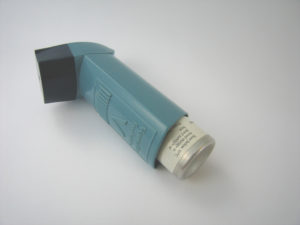 Serious asthma attacks in adults can be reduced by a temporary but significant increase in the dose of inhaled steroids during asthma deteriorations, according to a new national study involving NIHR Oxford BRC.
Serious asthma attacks in adults can be reduced by a temporary but significant increase in the dose of inhaled steroids during asthma deteriorations, according to a new national study involving NIHR Oxford BRC.
The Fourfold Asthma Study (FAST), published in the New England Journal of Medicine this week was led by asthma experts at the University of Nottingham and co-authored by the NIHR Oxford BRC Respiratory Theme Lead, Prof Ian Pavord.
Previous research in Nottingham found that doubling the dose of inhaled steroids during worsening asthma did not prevent the frequency of serious attacks. This new NIHR-funded clinical trial was set up to see if quadrupling the dose had a more beneficial effect.
The study compared two asthma self-management plans in a large trial involving nearly 2000 patient volunteers in England and Scotland. Around half the patients were randomly assigned to the plan that prescribed a quadrupling of inhaled steroid during periods of worsening asthma and the other half followed the current standard self-care plan over a period of 12 months.
The study showed that the participants in the quadrupling group had a 20 per cent reduction in severe asthma attacks compared with the usual care group and they also had fewer asthma-related hospital admissions, with only three patients in the quadrupling group admitted to hospital, compared to 18 in the usual care group.
This self-management approach could result in reduced need for oral steroids such as prednisolone, fewer admissions to hospital with severe asthma and hopefully fewer deaths from asthma.